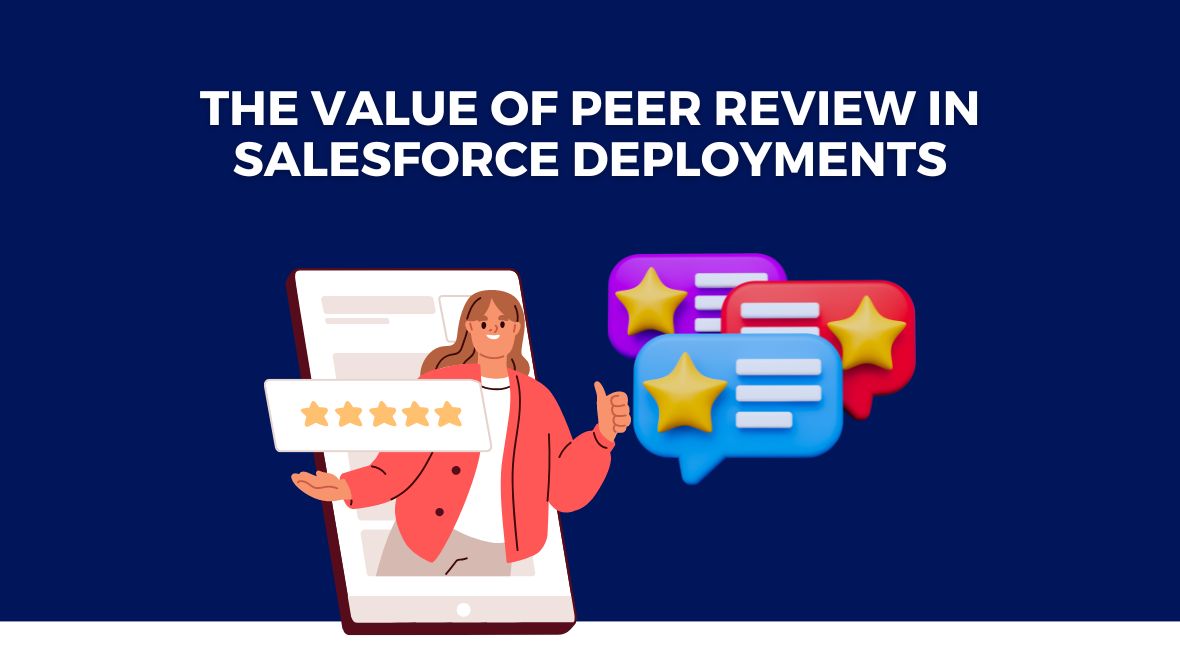Introduction:
Salesforce, being a robust and highly customizable platform, often undergoes numerous changes and enhancements to meet evolving business needs. However, ensuring the success and stability of these changes requires more than just technical expertise; it requires collaboration and validation. This is where peer review steps in.
1. Quality Assurance:
Peer review acts as a quality assurance checkpoint in Salesforce deployments. When a developer completes a task or implements a new feature, having a peer review ensures that the code adheres to best practices, follows established standards, and is free from bugs or vulnerabilities.
2. Knowledge Sharing:
Peer review facilitates knowledge sharing among team members. It provides an opportunity for developers to learn from each other, exchange ideas, and discover new approaches or techniques. Through reviewing each other’s code, team members can broaden their understanding of Salesforce development and stay updated on industry trends.
3. Error Detection:
One of the primary benefits of peer review is error detection. While developers strive to write flawless code, oversights and mistakes can occur. Peer review helps catch these errors early in the development process, preventing them from escalating into more significant issues downstream. By having multiple sets of eyes examine the code, potential bugs, logic flaws, or performance bottlenecks can be identified and rectified promptly.
4. Code Consistency:
Consistency is key to maintaining a scalable and maintainable Salesforce org. Peer review promotes code consistency by ensuring that all developers adhere to the same coding standards, naming conventions, and architectural guidelines. This consistency streamlines collaboration, simplifies troubleshooting, and enhances the overall readability and maintainability of the codebase.
5. Continuous Improvement:
Beyond the immediate benefits of error detection and knowledge sharing, peer review fosters a culture of continuous improvement within the development team. Constructive feedback provided during peer reviews helps developers grow professionally, refine their skills, and strive for excellence in their work. By embracing feedback and iterating on their code based on peer suggestions, developers can deliver higher-quality solutions and drive innovation within the organization.
Conclusion
In conclusion, peer review is an invaluable practice in Salesforce deployments, offering a multitude of benefits ranging from quality assurance and error detection to knowledge sharing and continuous improvement. By making peer review an integral part of the development process, organizations can elevate the quality of their Salesforce solutions, mitigate risks, and foster a collaborative and learning-oriented environment within their teams.
By incorporating peer review into your Salesforce deployment strategy, you’re not just improving the quality of your code – you’re investing in the growth and success of your entire development team.


